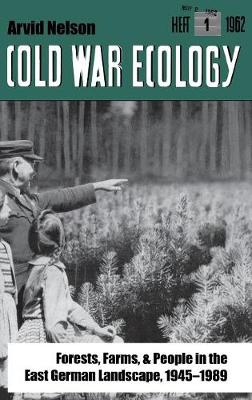Yale Agrarian Studies
2 total works
A new way of measuring the health of a political system: by examining the health of its landscapes and ecosystems
East Germany, its economy, and its society were in decline long before the country’s political collapse in the late 1980s. The clues were there in the natural landscape, Arvid Nelson argues in this groundbreaking book, but policy analysts were blind to them. Had they noted the record of the leadership’s values and goals manifest in the landscape, they wouldn’t have hailed East Germany as a Marxist-Leninist success story. Nelson sets East German history within the context of the landscape history of two centuries to underscore how forest and ecosystem change offered a reliable barometer to the health and stability of the political system that governed them.
Cold War Ecology records how East German leaders’ indifference to human rights and their disregard for the landscape affected the rural economy, forests, and population. This lesson from history suggests new ways of thinking about the health of ecosystems and landscapes, Nelson shows, and he proposes assessing the stability of modern political systems based on the environment’s system qualities rather than on political leaders’ goals and beliefs.
Consumers now encounter organic or fair-trade labels on a variety of products, implying such desirable benefits as improved environmental conditions or more equitable market transactions. But what do we know about the origins and development of the organizations behind these labels? Why have some flourished while others faltered? And why are some sectors rich with labeling organizations while others have very few? This book compares the rise and evolution of certification programs in the coffee, fishery, and forest industries to arrive at a model that reveals how market and political conditions, as well as the characteristics of program founders, shape the early character of the governance rules and certification standards that programs adopt.

